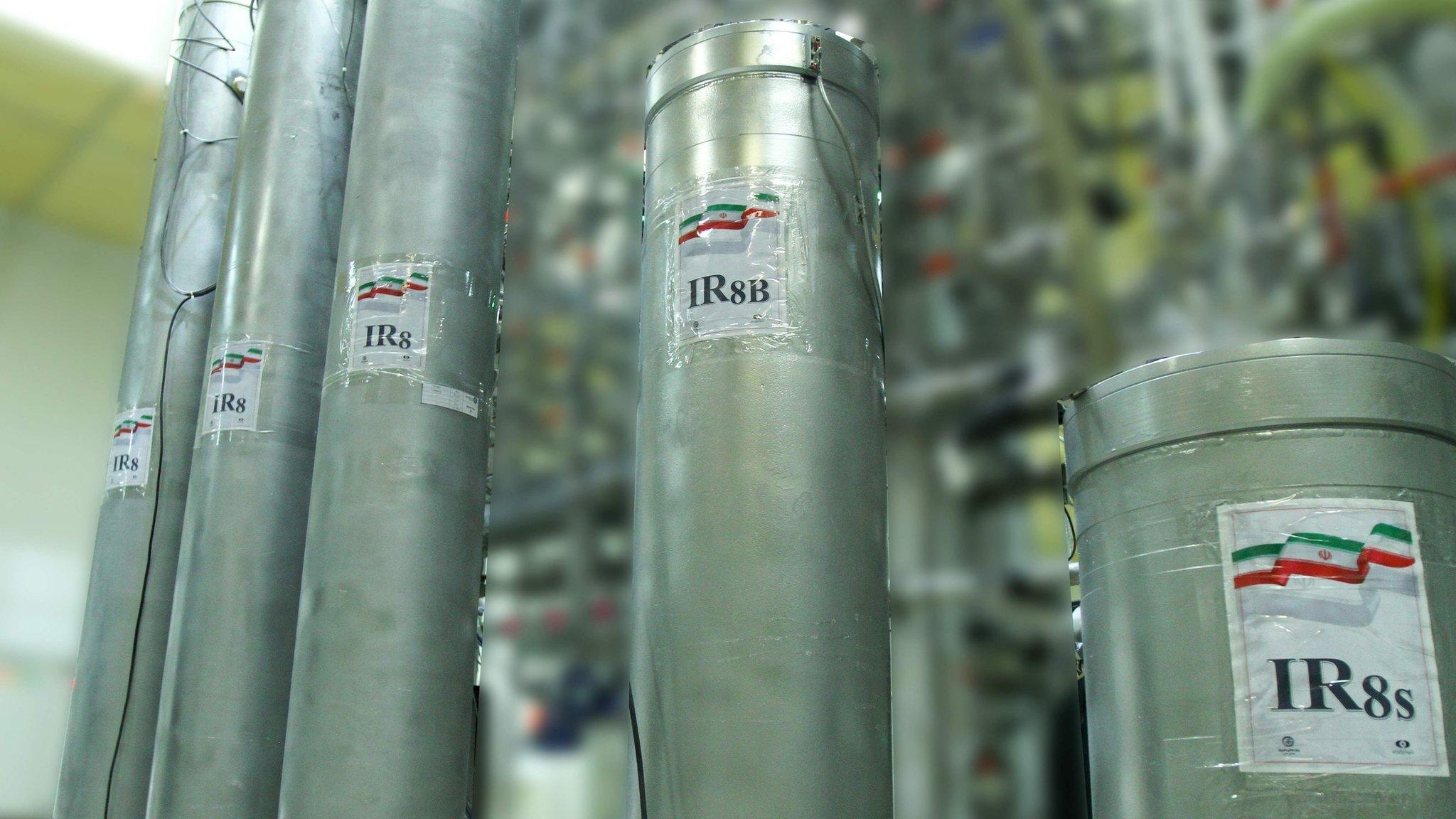Iran oil: New field with 53bn barrels found - Rouhani
- Published
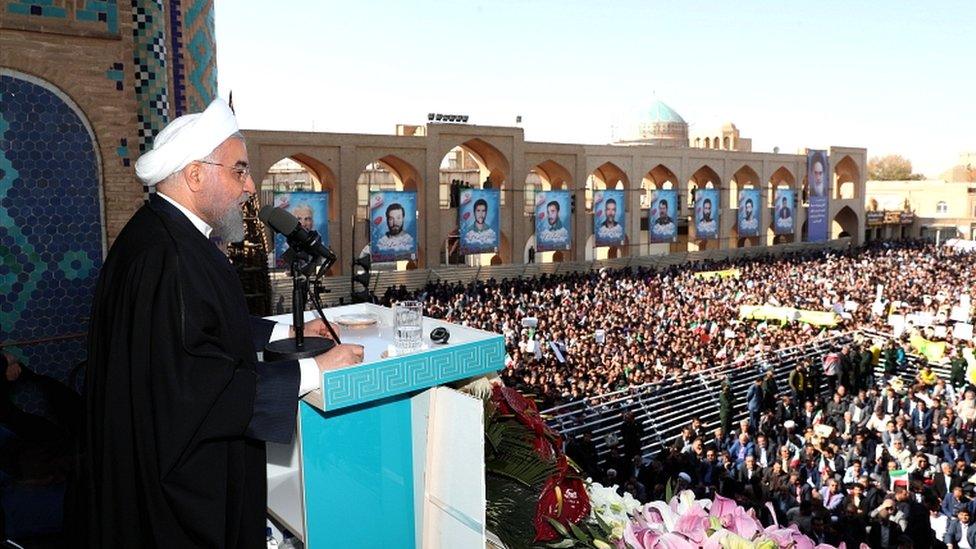
Mr Rouhani made the announcement as he delivered a speech in the central city of Yazd
A new oil field that would increase Iran's proven reserves by about a third has been discovered, President Hassan Rouhani has said.
The field, in the south-western province of Khuzestan and about 2,400 sq km (926 sq miles) in area, contains 53 billion barrels of crude, he said.
Iran has been struggling to sell oil abroad because of tough US sanctions.
They were imposed after the US pulled out of a nuclear deal with world powers last year.
"We have found an oil field with 53 billion barrels of oil in place, 53 billion barrels. This is in a big oil field that stretches 2,400 sq km from Bostan to Omidiyeh. The oil layer has a depth of 80m (262ft)," he said during a speech in the central city of Yazd.
Iran's oil revenues will increase by $32bn (£25bn) "if extraction rate from the oil field increases only 1%", he added.
"I am telling the White House that in the days when you sanctioned the sale of Iranian oil, the country's workers and engineers were able to discover 53 billion barrels of oil," he is quoted as saying by the semi-official Fars news agency.
The new oil field could become Iran's second largest field after the one containing 65 billion barrels in Ahvaz, says the AP news agency.

Iran is one of the world's largest oil producers, with exports worth billions of dollars each year.
Its existing proven reserves are of some 150 billion barrels, Mr Rouhani said.
It has the world's fourth-biggest oil reserves and second-largest gas reserves, and shares a massive offshore field in the Persian Gulf with Qatar.
Feeling the squeeze: Iran sanctions explained
US President Donald Trump reinstated the sanctions against Iran last year after abandoning the landmark 2015 nuclear deal between Iran and six world powers.
Under the accord, Iran agreed to limit its sensitive nuclear activities and allow in international inspectors in return for sanctions relief.
The sanctions have led to a sharp downturn in Iran's economy, pushing the value of its currency to record lows, quadrupling its annual inflation rate, driving away foreign investors and triggering protests.
- Published22 April 2019
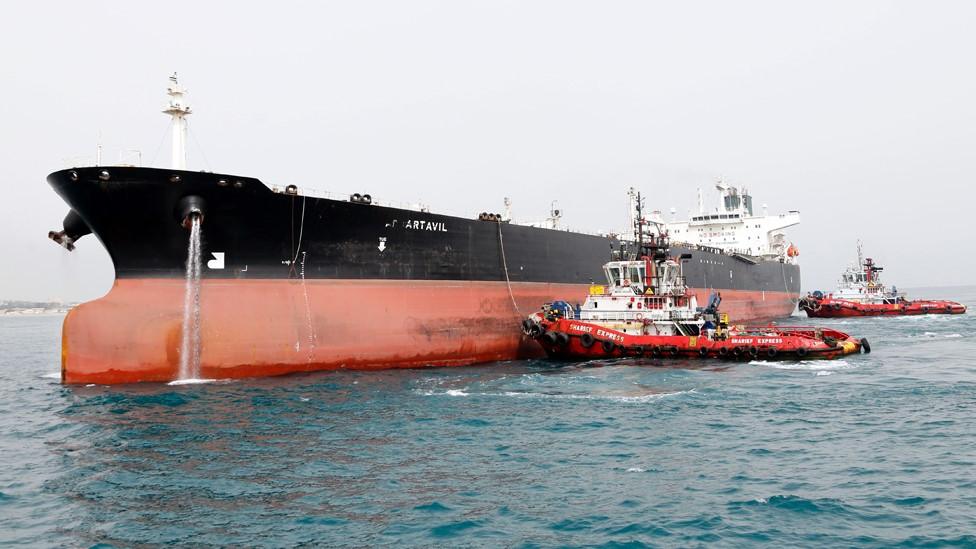
- Published26 June 2018
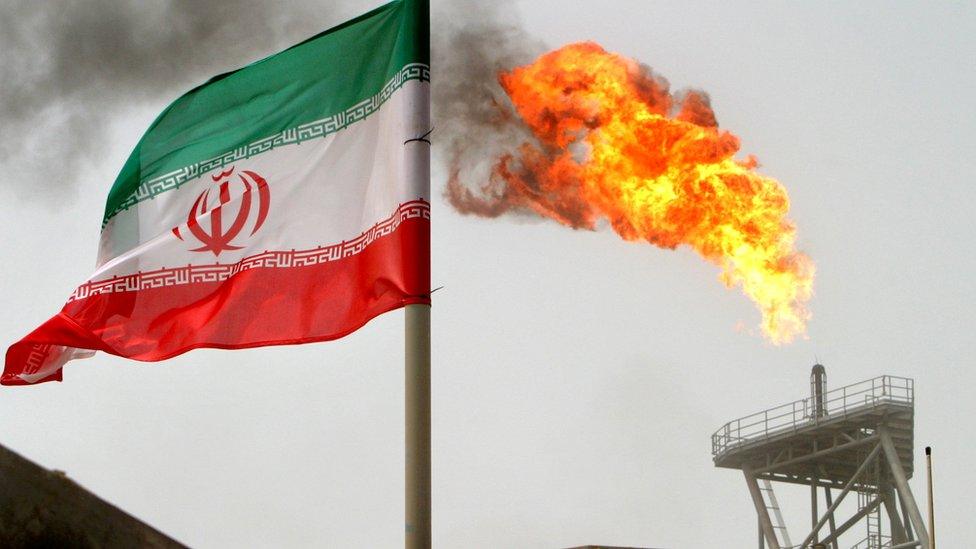
- Published14 October 2019
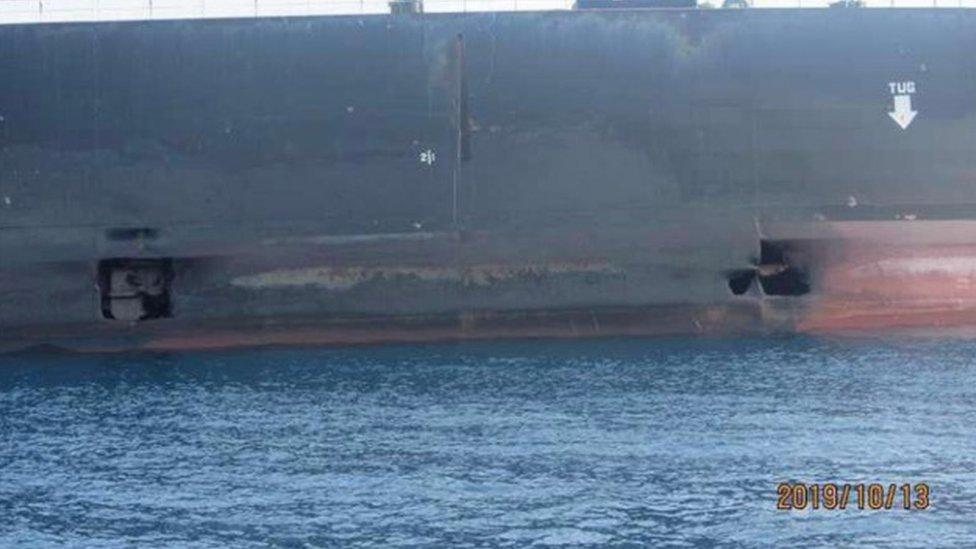
- Published11 October 2019
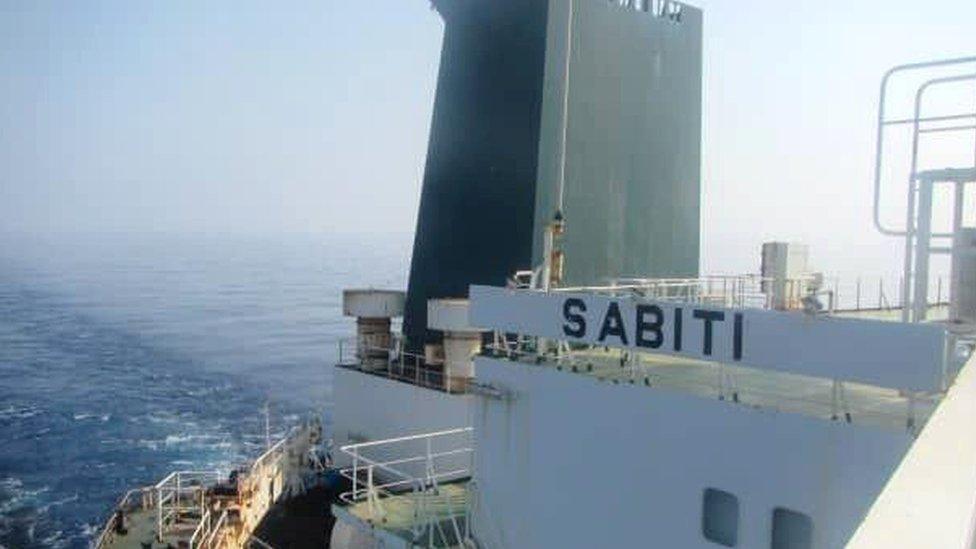
- Published30 September 2019
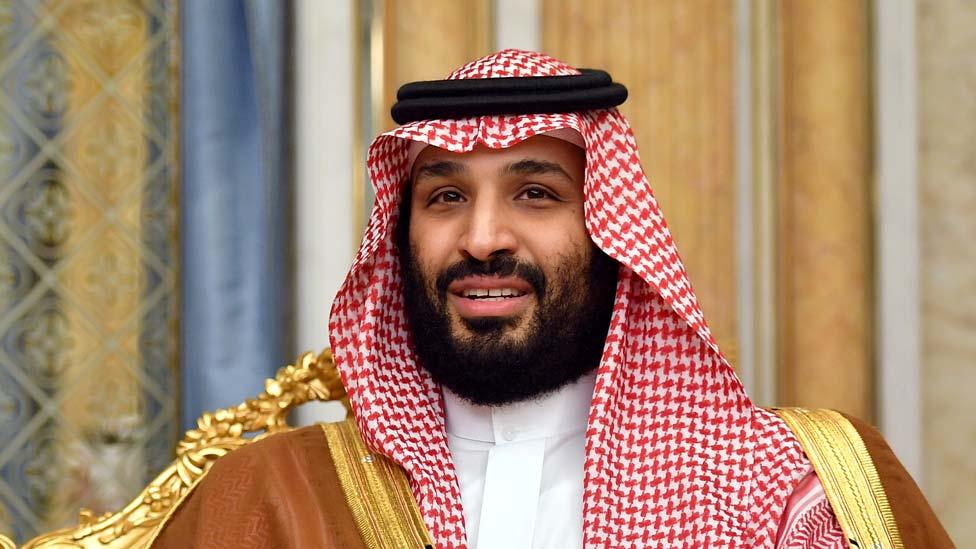
- Published7 November 2019
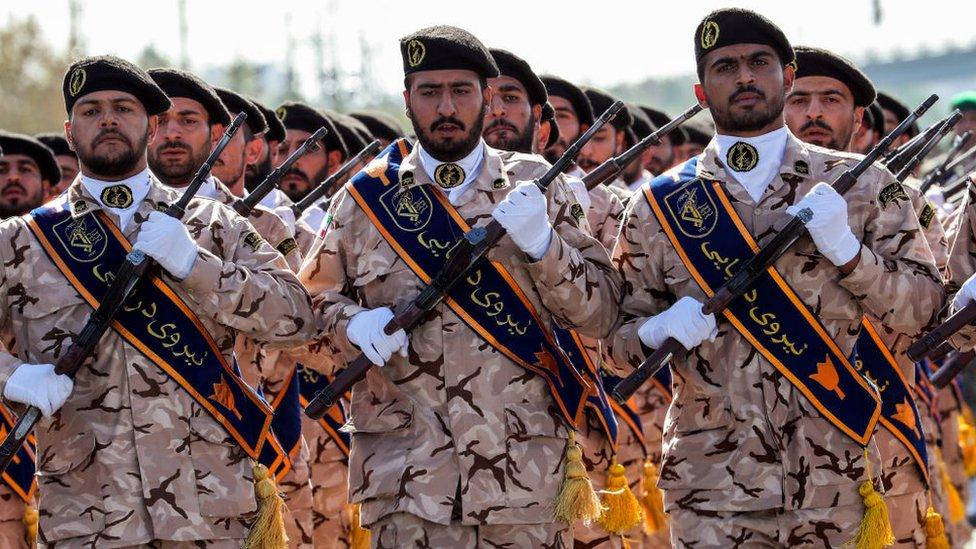
- Published7 November 2019
